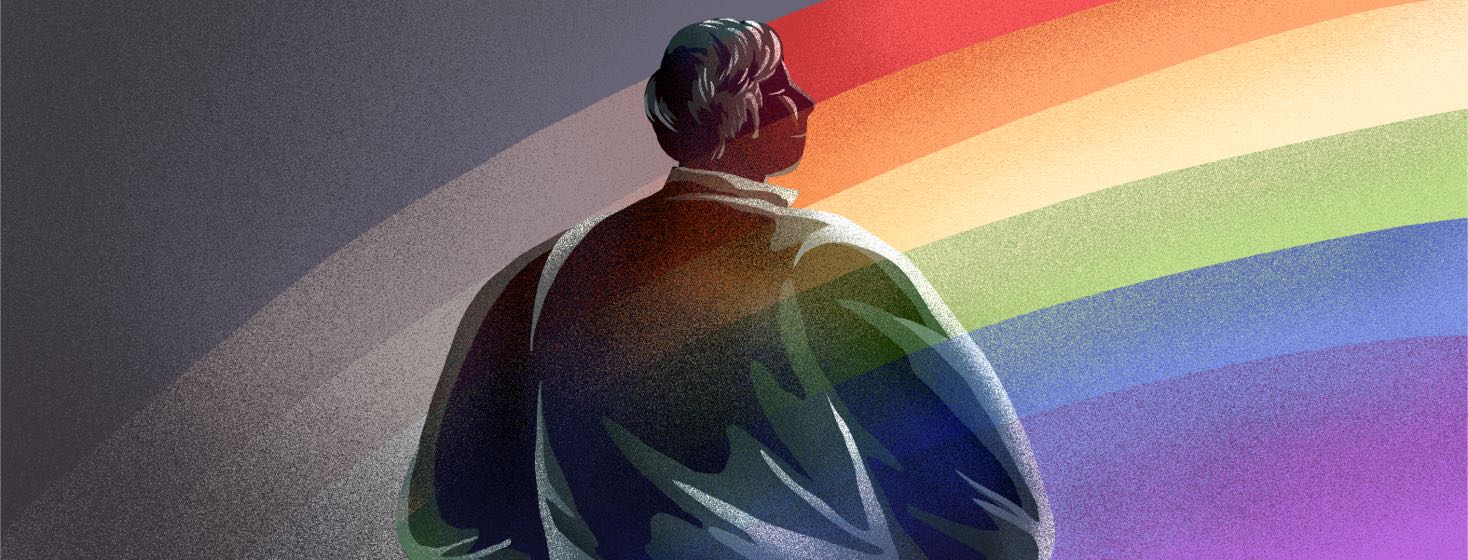Prostate Cancer Community Spotlight: Matthew Curtin
Matthew shares his experience trying to find support as a gay prostate cancer survivor, the frustrations he faced – including that many prostate cancer resources focused only on straight men – and a helpful resource he finally found.
My diagnosis and treatment path
During a routine annual physical in September 2020, it was suggested that I see a urologist. My primary care doctor and I had been tracking my PSA levels for a while. Though the “numbers” were not necessarily high, the rate of increase was a cause for some concern. Within a month I was scheduled for an appointment and a biopsy shortly thereafter.
I can still remember the day the news came through. I was sitting at my office desk when the call came through within only a couple of days from the biopsy. Expecting the results within a few weeks, I “knew” the news would not be good when I saw the caller ID. I was fortunate though to get an appointment with the surgeon within a couple of weeks.
The surgeon was frank about what to expect and what needed to be done; treatment options were discussed. Though I don’t regret the decision I (we, the surgeon, and I) made together, that appointment resonates over and over in my mind. The fact that a major life decision, which I was ill-prepared to make, was about to be made in a sterile doctor’s office within a matter of minutes. By the end of the appointment, the surgery was scheduled 2 months later.
The emotional impact
The emotional impact (toll, if you will) crept up in a variety of ways. Bear in mind, my surgery was in early February 2020 – 6 weeks before COVID shut us all down. Throughout my physical healing and adjustment, the isolation I felt (perhaps what others were feeling) and the anxiety of COVID were so much of a concern. I found myself mired in feeling, “What the hell just happened to me?”
Even prior to COVID, I had sensed the need to talk with someone. I’m not one to wallow, so I focused on exercising and getting healed... quickly, but that isolation still was brewing. I do believe that COVID kept me from really addressing what was going on. By the time I had my 3-month follow-up appointment, I was pissed that there wasn’t an avenue to “heal” the entire patient. Physically, I was doing great. I was back on the bike, walking and exercising; fortunate in that regard.
Addressing the needs of gay men
At my 6-month follow-up with the surgeon, I was informed that the “system” failed me and that indeed there was a need to treat the emotional part AND to address the needs of a gay man, which could not be just how you deal with a straight man. I had felt marginalized. I had felt, yet again, that I was being told I had to conform to a straight reality. Of course, this really pissed me off.
I was informed that a social worker and therapist were coming on board to provide oncology emotional support. So, this was August 2020. I’m not sure how soon after that I was in touch with a social worker. But I remember the first meeting well. Again, in the throes of COVID, the telemedicine call brought out a lot of issues, very emotional issues.
The overwhelming sense was that the person on the other line completely supported my need to talk and validated the need to treat the “whole” patient. We had several calls that were incredibly productive. I was then able to connect with a therapist who I met with in January 2022.
A resource for gay prostate cancer patients
During the immediate post-op time, I felt as if I had to conform, yet again, to a straight world. I didn’t like this at all. It’s not that I was not healing or making progress; the after-care was written for a straight, married man. I remember asking the question: What about gay men? What about religious (celibate) men? What about transgender men? Needless to say, an entire clinic at Northwestern is now in place to treat gay and bisexual men.
I think it could be useful for others to reach out to Northwestern Urology either as primary care or as a second opinion. Both “my” medical doctors and the staff there are open and caring, and I am confident they will address most if not all the concerns of a gay man. They have created a practice and an after-care that I hope continues to expand and that fully embraces the need to care for all “types” of men.
Feeling grateful
Currently, I am grateful. I am relieved. I am fortunate. Words cannot express the depth of these feelings. With a cancer diagnosis, there is always the anxiety of “Will it come back?” But I’ve learned to live with that.
There’s uncertainly all around us, but I can tell you that knowing I’ve got the medical team at Northwestern with me and behind me as a resource is a huge part of my new reality!

Join the conversation